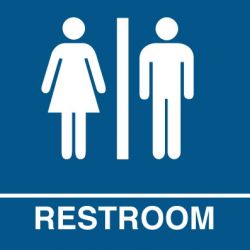The proceedings have been pending for a year. In October 2009 Mr Głuchowski visited two banks located at Plac Bankowy, a busy business area in Warsaw city centre. During his visits at the establishments, he had to use a toilet. For that purpose he went to the room which, according to his knowledge, was a designated toilet facility. Yet the door was locked and the room marked as ‘utility area’. In the meantime, he was sent to other rooms where he asked for directions to the toilet. It took a long time and repeated consistent requests before he was allowed access to a toilet facility. However, the room he was let in had no natural or artificial light. To find out more about the case, use this link.
At the beginning of the last year Mr Głuchowski decided to bring a legal action against the banks, seeking protection of his personal interests.
Under the terms of the settlement PKO BP, one of the defendants, agreed to apologise to the claimant in writing, pay him the compensation for non-pecuniary damage and make its toilets available to customers visiting the bank’s branch in question.
‘In our view the controversy of Mr Głuchowski is a landmark case as it concerns conditions that public utility buildings have to fulfil’, says Katarzyna Wiśniewska, a HFHR lawyer who observed the proceedings.





